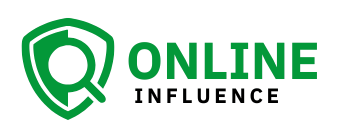In today’s world, where security and privacy are paramount, the demand for surveillance technology has surged. Among these technologies, spy cameras have emerged as a popular choice for both personal and professional use. The versatility and discreet nature of these devices make them ideal for various applications, from home security to monitoring workplace activities. This article delves into the world of spy cameras, exploring their uses, benefits, and considerations for potential users.
Spy cameras, also known as hidden cameras or covert cameras, are designed to capture video footage without drawing attention to themselves. They can be disguised as everyday objects such as smoke detectors, alarm clocks, or even picture frames, allowing them to blend seamlessly into their surroundings. This discreet design is one of the primary reasons why individuals and businesses opt for spy cameras; they can monitor activities without being intrusive.
One of the most significant benefits of using spy cameras is enhanced security. Homeowners often install these devices to keep an eye on their properties, especially when they are away. With the ability to monitor live feeds remotely through smartphones or computers, users can ensure their homes remain safe from intruders. Furthermore, many modern spy cameras come equipped with motion detection features, alerting homeowners to any unusual activity in real time.
In the workplace, spy cameras can serve as a valuable tool for ensuring employee productivity and safety. Employers may use them to monitor work environments, ensuring that employees adhere to company policies and procedures. This monitoring can also help prevent theft or misconduct, creating a safer and more efficient workplace. However, it is essential for employers to communicate transparently about surveillance practices to avoid potential legal issues related to privacy.
Beyond security and monitoring, spy cameras also have applications in childcare. Parents often use these devices to keep an eye on caregivers, ensuring the safety and well-being of their children. With the ability to check in on little ones from anywhere, parents can have peace of mind knowing they can monitor their child’s environment, even when they are not physically present.
While the benefits of spy cameras are numerous, potential users should also consider the ethical implications of their use. Privacy concerns are paramount, and it is crucial to use these devices responsibly and within the bounds of the law. In many jurisdictions, it is illegal to record someone without their consent, particularly in private settings. Therefore, individuals and businesses must familiarise themselves with local laws regarding surveillance to avoid legal repercussions.
When selecting a spy camera, users should consider several factors, including resolution, storage capacity, and connectivity options. High-definition cameras provide clearer images, making it easier to identify individuals or activities. Additionally, users may opt for cameras with cloud storage capabilities, allowing for easy access and retrieval of footage.
For those interested in exploring the various options available, there are numerous resources online. Websites dedicated to surveillance technology provide comprehensive guides and reviews, helping users make informed decisions. For instance, you can discover a range of spy cameras that cater to different needs and preferences.
In conclusion, spy cameras have become an integral part of modern security solutions, offering peace of mind to homeowners, employers, and parents alike. Their discreet design and advanced features make them versatile tools for monitoring and ensuring safety. However, it is essential to navigate the ethical considerations and legal implications associated with their use. By understanding the benefits and responsibilities that come with spy cameras, users can effectively enhance their security while respecting privacy boundaries.



